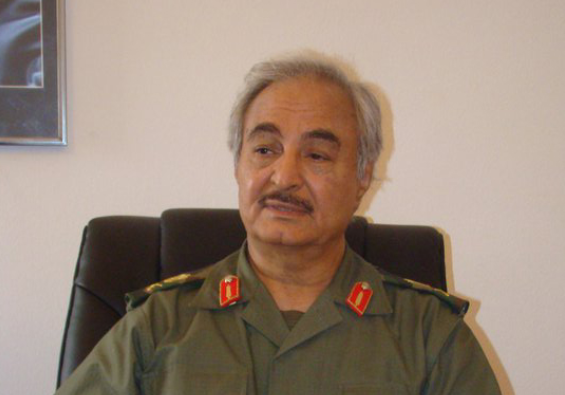Following a flurry of high-level meetings at the Foreign Ministry, the Defense Ministry and the UN Security Council, Hifter made statements that marked a change in his vision of Russia’s role in the Libyan war. “In the future, when an arms embargo will be lifted and the deliveries of advanced weapons begin, we will need Russian weapons experts for military training,” he told Russian journalists.
The statement is a departure from the general’s position in June when he requested the delivery of Russian arms despite the existing embargo. The leader of the Libyan National Army also promised billions worth of deals for Russian companies in restoring the country’s infrastructure and developing its oil deposits.
Hifter’s evolution goes along the lines of how Moscow sees his role in Libya, revealing just how much sway the Russian authorities have over the general. Before the Russian military campaign in Syria, Russian authorities were keenly flirting with the idea of fighting extremists in Libya. In early 2015, Russian Ambassador to the UN Vitaly Churkin told journalists they were planning a Russian naval blockade off the Libyan coast to prevent the Islamic State (IS) from receiving weapons by sea and to prevent arms deliveries to the internationally backed government.
With the launch of the Syrian campaign, Russia has been walking a fine line between a limited military operation and a quagmire. The Libyan context is equally as challenging as the Syrian one for Moscow. Coupled with logistical troubles associated with a possible operation there, it would be certain to turn into a quagmire for Russia.
In other words, Syria gave a timely reality check to Russia’s possible military ambitions in Libya. This doesn’t mean, however, that Russia will give up on Libya altogether, but only that it puts politics over the military in the country at the moment. Militarily, Hifter is not in dire need for Russian aid at the moment. Amid fierce fighting that is raging between militias in Tripoli, exposing the limitations of the unity government’s control, Hifter in the east of the country is making significant advances against forces allied with IS in Benghazi, positioning his army as a primary front against extremists.
Martin Kobler, the UN envoy for Libya, indicated in Rome last week that the general may now be seen as part of the political process in Libya. Unconfirmed reports also hint that recognizing Hifter’s influence, Kobler’s office may be pushing for amendments to the political agreement that would give Hifter a share of political power in Tripoli. A leading role in the Tripoli government is the key reason why Hifter has been preventing the House of Representatives based in Tobruk from voting on the UN-backed unity government for almost a year now.





